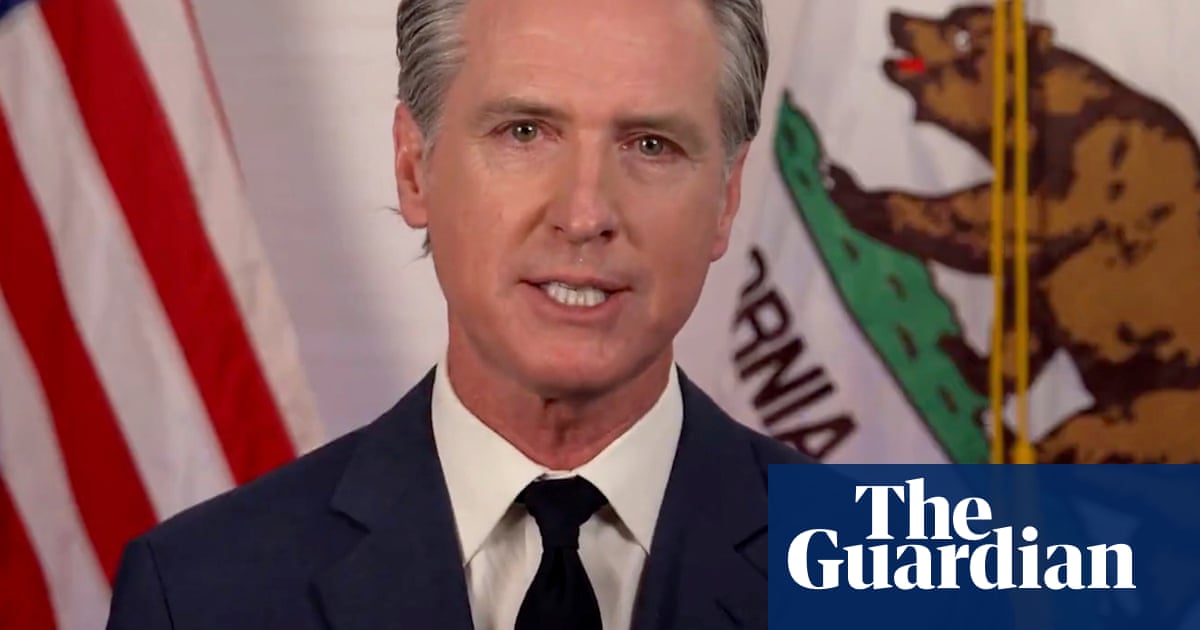Tensions Rise Between California Governor and Trump Administration
In a passionate evening address, California Governor Gavin Newsom made headlines by condemning what he described as an “assault” on democracy, directly targeting the policies of former President Donald Trump. Newsom’s remarks came amidst mass protests in Los Angeles, sparked by a controversial immigration crackdown that many Californians believe has unfairly targeted vulnerable communities.
A Call to Action
Newsom articulated the severity of the situation, implying that the Trump administration’s measures have exceeded mere immigration enforcement, impacting everyday workers such as “dishwashers, gardeners, day laborers, and seamstresses.” This pointed critique highlights the broader implications of federal immigration policies, suggesting that they not only affect those with criminal records but also those who play essential roles in the community.
Disturbing Incident Reports
In his address, Newsom recounted alarming incidents involving Immigration and Customs Enforcement (ICE) agents. He mentioned individuals being seized outside Home Depot stores and detailed a shocking event where a nine-month pregnant U.S. citizen was detained. Furthermore, he criticized the deployment of unmarked cars in school zones, emphasizing the far-reaching consequences that these actions have on families and the sense of safety within local communities.
Military Involvement Draws Ire
In an extraordinary escalation of tensions, Newsom raised concerns over Trump’s decision to deploy the California National Guard without his approval. He warned other states that California’s experience could be a precursor to similar actions nationwide. “California may be first – but it clearly won’t end here,” he cautioned, signaling that the implications of this could resonate beyond state borders.
A Curfew in Los Angeles
As protests intensified, Los Angeles Mayor Karen Bass announced a 10-hour curfew in a one-square-mile area downtown. This decision followed reports of over 300 arrests during the demonstrations against ICE policies. The mayor’s actions come on the heels of Newsom filing an emergency lawsuit aimed at blocking the use of military forces to accompany ICE raids throughout the city, reflecting a growing divide between local and federal authorities.
Nationwide Protests
The movement against the Trump administration’s immigration strategies extended well beyond California. Demonstrations against the federal immigration crackdown erupted in cities like New York, Chicago, Atlanta, Omaha, and Seattle. This nationwide outpouring of discontent underscores the pervasive feeling among many Americans that immigration policies need reform and that the current measures disproportionately affect innocent individuals.
The Financial Burden of Military Deployment
The mobilization of U.S. Marines and National Guard troops to Los Angeles is projected to cost taxpayers at least $134 million, as stated by U.S. Defense Secretary Pete Hegseth. With 2,700 military personnel dispatched to the city, this financial commitment raises questions about the priorities of the Trump administration and the local response to the ongoing immigration debate.
Escalating Rhetoric
The confrontation between Newsom and members of Congress escalated further when Republican House Speaker Mike Johnson suggested that Newsom should be “tarred and feathered.” This reaction showcases the charged atmosphere surrounding immigration reform and the various viewpoints on how it should be addressed. Johnson’s inflammatory comment reflects the deep divisions in how national leaders perceive state-level opposition to federal policies.
Misinformation and Conspiracy Theories
In a speech at Fort Bragg, Trump propagated a series of falsehoods regarding the protests and tensions in Los Angeles. He characterized local demonstrators as part of a “foreign invasion” while vilifying California’s Democratic leadership. This rhetoric not only amplifies misinformation but also further polarizes public opinion on the immigration issue.
Broader Implications
The ripple effects of these recent developments extend into various facets of policy and governance. From cuts to USAID personnel aimed at restructuring foreign aid operations to significant increases in capital punishment executions, these actions indicate a broader re-alignment under the Trump administration.
Daily Updates on Current Events
Amidst these unfolding issues, key events highlight the complexity of the political climate. Whether discussing immigration, military intervention, or international relations, the landscape remains dynamic, with citizens closely monitoring the ramifications of these policies on their communities and beyond.
The current situation exemplifies a critical moment in U.S. history where the seemingly disparate threads of immigration reform, state rights, and executive power converge, shaping the dialogue around democracy and governance in America today.


